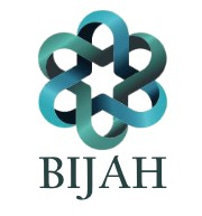Understanding Triggers and How to Deal with Them
Recognizing when we are triggered is an important step in understanding and managing our emotions.
INSPIRATION
Ariana Hitch
12/20/20233 min read


Triggers are events or situations that elicit an emotional response within us. They can range from minor irritations to intense emotions, and they are often related to specific events or people in our lives. Recognizing when we are triggered is an important step in understanding and managing our emotions.
When we experience triggers, our natural tendency is to assign blame to someone or something, rationalize the trigger, deny its existence, or suppress the associated feelings and emotions. This can manifest as escaping into our thoughts, seeking distractions, or even developing addictions as a means of avoidance.
Denying the fact that we are triggered is common, especially for those who tend to suppress their emotions. It can be challenging to acknowledge and accept our triggers, but doing so is crucial for our emotional awareness.
When we are triggered and unaware of it, our minds often create a narrative that justifies our feelings and actions. This narrative helps us convince ourselves that we are in the right, even if our reactions may be disproportionate or irrational.
It is important to note that triggers can stem from our shadow material, unhealed wounds and interdimensional aspects (past lives etc). Our shadow material refers to the aspects of ourselves that we have repressed or denied, often due to societal conditioning or personal experiences. These hidden parts of ourselves can become triggers when they are activated by certain events or interactions.
Similarly, unhealed wounds from our past can also act as triggers. These wounds may have resulted from traumatic experiences, unresolved conflicts, or unaddressed emotions. When triggered, these wounds resurface, causing intense emotional responses that may seem out of proportion to the current situation.
Interdimensional aspects can be carried over from other realms, dimensions, past lives, and energy systems. These are not conscious aspects and aren't easily reactivated through memory recall, so need to be addressed using a holistic approach and a higher consciousness.
Recognizing and addressing our triggers is essential for personal growth and emotional awareness. Here are a few strategies to help deal with triggers:
Self-awareness: Pay attention to your emotions and reactions. Even if it is many moments after the trigger occurred. This means being able to feel what that trigger feels like in your body and the sensations and emotions that arose out of the experience.
Emotional acceptance: Practice the All-Accepting technique. Close your eyes, focus on the place in the body you feel the emotion, name the emotion, and repeat to yourself, "Even though I feel this [emotion], I still deeply love and accept all the parts of me that feel this [emotion]". Continue this for each arising emotion and until the emotional intensity diminishes.
Breathing: Try deep breathing into the lower rib cage, or try alternating nostril breathing to help manage your emotions when you are triggered.
Find support: Reach out to trusted friends, family, or professionals who can provide guidance and support as you navigate your triggers. Try to not linger too long on the story (assumptions, judgments, blaming, criticism etc).
Instead, focus on talking about the following 5 points: Observe | Feeling | Need | Positive Action | Barrier (optional). Also, ask your support person if they are willing to listen and reflect back what they understood.
When this [situation] happened, I felt [emotion], I really needed [need], I will [positive action] but [barrier].
Here is an example, When Jasmine arrived late to the meeting, I felt so irritated, I really needed commitment and support, I will have to talk to her before our next meeting but I don't know how to best approach her.Engage: Engage in activities such as therapy, meditation, or creative or bodily activities.
By acknowledging and addressing our triggers, we can develop healthier coping mechanisms and cultivate emotional resilience. Remember, triggers are an opportunity for growth and self-discovery, and with practice, we can learn to navigate them with grace and understanding.
Contacts
hello@bijah.uno
021 068 6094
